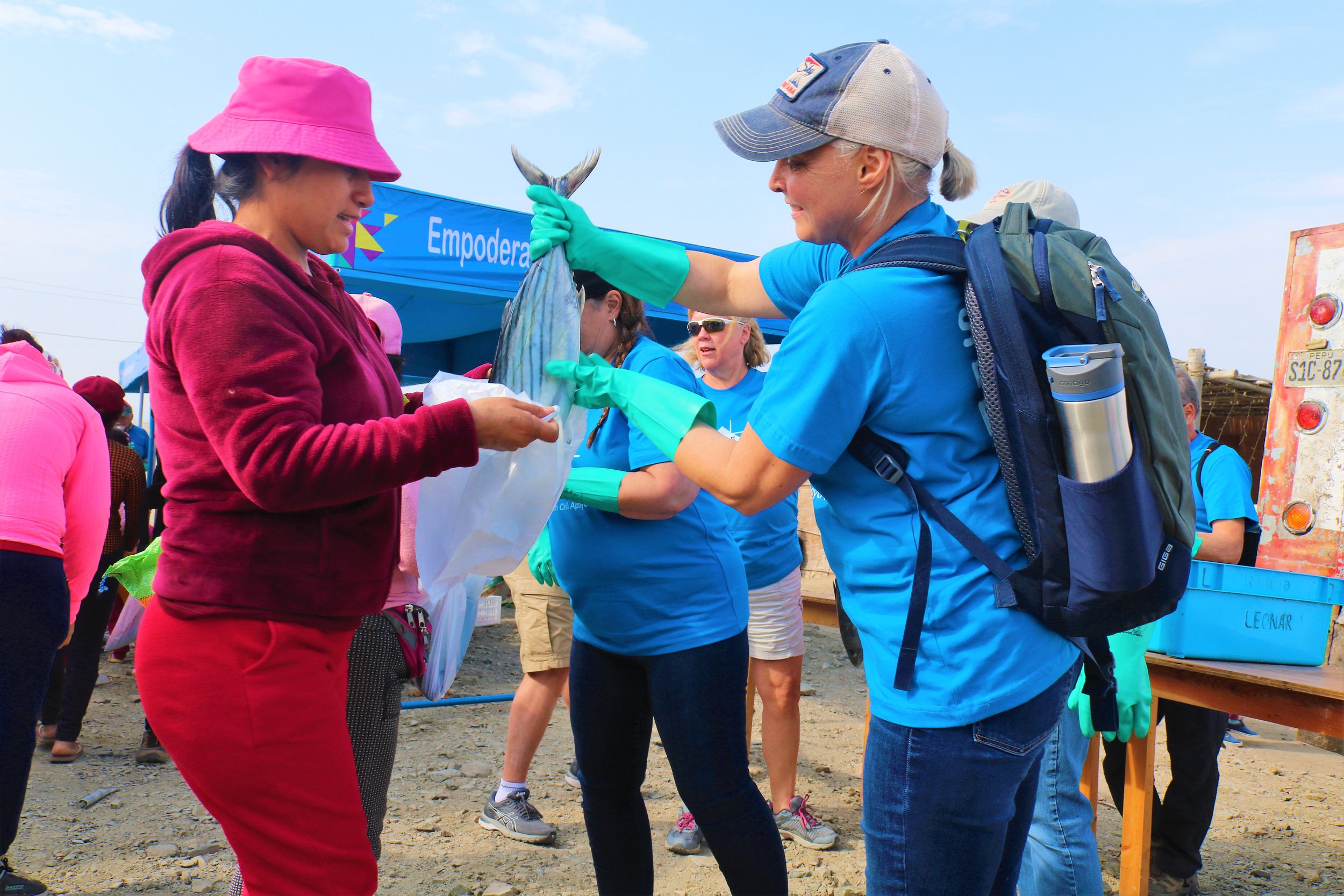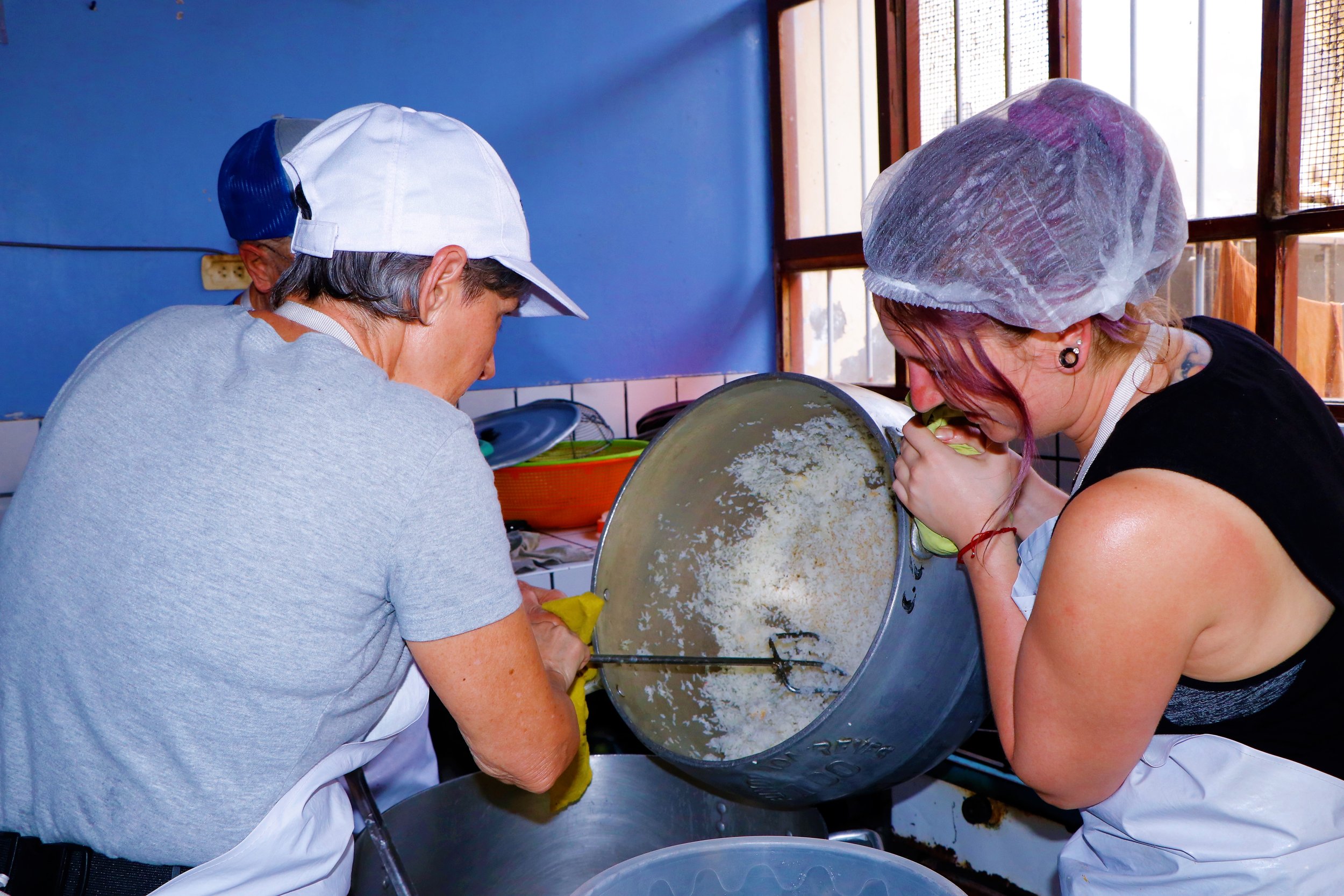

Social Programs & Family Development
Our mission’s social programs provide the basic needs most of us take for granted. Far too many children and adults living within the barrios we serve experience the raw ache of hunger day after day, the fear that comes during the darkness of night due to no electricity, and illness related to inadequate shelter from the elements. The focus of our social programs is to help the poor of Chimbote get access to the most basic needs of human life ….food, water, shelter, clothing, and a safe place to sleep. Only when these needs are met is the next step out of poverty possible.
Family Development & Advocacy
Poverty frequently results in psychological problems, parenting challenges, legal concerns, and abusive behaviors. Often it is the children and women who suffer the most. The mission’s social workers spend hours walking the dirt roads of Chimbote, Cambio Puente and surrounding communities knocking on doors and performing in-home assessments to determine the needs of individual families. They are then directed to the appropriate resource or program that we offer. This may include counseling from a mission psychologist, referral to a soup kitchen, assistance with housing, educational support for the children, encouragement to apply for a micro-loan, or an invitation to attend a variety of seminars offered by mission staff promoting healthy families and homes.
Injustice is also a frequent partner of poverty – it’s more difficult for the poor to fight for their rights when they can’t pay for legal services. We partner with the municipality of Chimbote to provide legal advocacy services, making it possible for victims of domestic abuse, housing discrimination, lack of parental support, wrongful arrest, and other issues to get legal advice and representation.
Housing Program
Imagine living on land you do not own in a cramped space with dirt floors and walls made of woven reed (called estera) so thin that you can hear and see all that is going on at your neighbors. And at night lying in the dark – often in one bed shared by the whole family – hearing insects and rats running across your cardboard roof. This is all too common for thousands of people living in the barrios that we serve. Many families migrated to Chimbote seeking jobs and a better future for their families only to be faced with the reality of high unemployment and inadequate housing.
Thanks to the support provided by Friends of Chimbote, people’s lives are being changed through the mission’s housing support program. Cardboard, plastic, and estera roofs are being replaced with durable material called eternit that provides years of protection from the elements, as well as from rodents and insects. We’re working hard to replace dirt floors with concrete and estera walls with sturdy wood structures. Additional housing support comes from mission volunteers who work side-by-side with local residents to remodel homes and provide needed furnishings and household goods. The mission’s legal department helps people secure title to their property. Learn more about volunteering in Chimbote.
Loaves and Fishes
With fish as a main staple of the Chimbotanos, because of the generous resources that Friends of Chimbote donors have been providing, ACAF reached out to a local partner and fishing company, Hayduk and negotiated a discounted price on fish. Fish is a essential source of protein and because without refrigeration the fish can be salted and preserved receiving the fish is considered a great gift. Bread from the ACAF bakery (Solidaripan) is also provided at these distributions. Hundreds of people in the Cambio Puente communities line up and patiently wait to receive bread and fish to feed their families.
Soup Kitchen - Comedores Populares
Many of you know that Friends of Chimbote’s soup kitchens provide meals for numerous families in need. In the past two years, those soup kitchens prepared and served over 100,000 meals! What you may not know is that the way we operate the soup kitchens is different than most. When most think of a soup kitchen, they think of a place where hungry are provided a warm meal for free, and then leave.
How are Friends of Chimbote’s soup kitchens different? At a high level, you can think of them more as a cooperative, rather than a charity. To start, the meals are prepared by the same people who eat at the soup kitchen. Typically, each family in the community prepares a meal twice a month. Another distinction is that the families pay for each meal if they are able to do so. While it may be a nominal amount (and if you can’t afford to pay…no one is turned away), we have found that the expectation of payment if you are able provides both a practical and intangible benefit. The practical benefit is the payments help defray the food costs. The intangible benefit is payment provides a further sense of ownership and pride.
Water Distribution
It is hard to grasp the thought of having no access to water since it is so readily available to most of us. This essential element for human life is scarce in many of the barrios surrounding Chimbote. Families have no access to drinking water and because of this, serious illnesses and disease are common and growing. The “Water for Life” campaigns have taken place in numerous communities surrounding Chimbote. Thousands and thousands of liters of water have been distributed and thousand of people line the streets with their buckets and containers waiting to get this precious resource. With resources from FoC Donors, The ACAF staff has been able to coordinate water trucks to go out to these communities and provide this life-saving essential.
For Perspective…
In Cambio Puente each family has been buying 1,200 liters of water per month.
In the United States an average household uses 1,200 liters per day!





